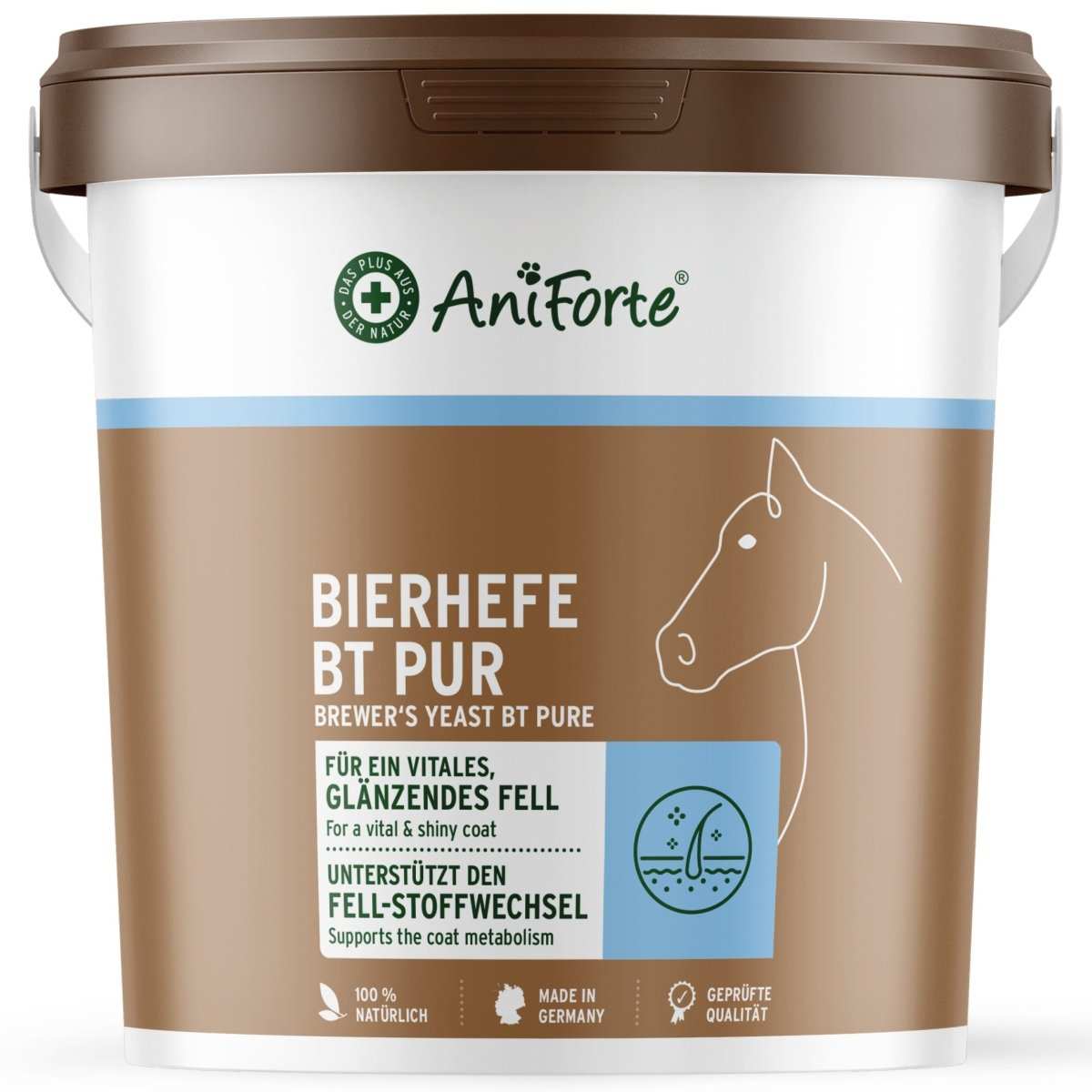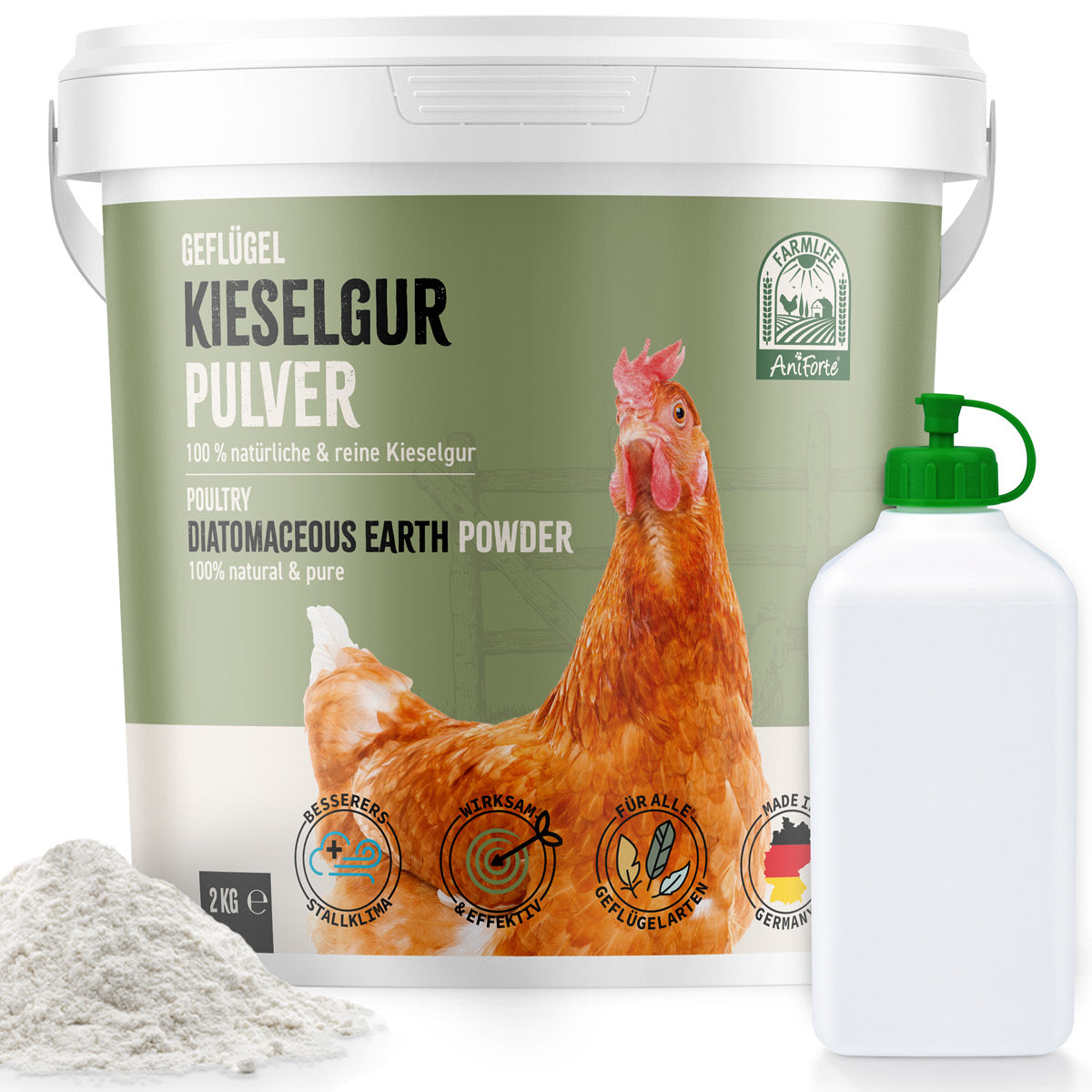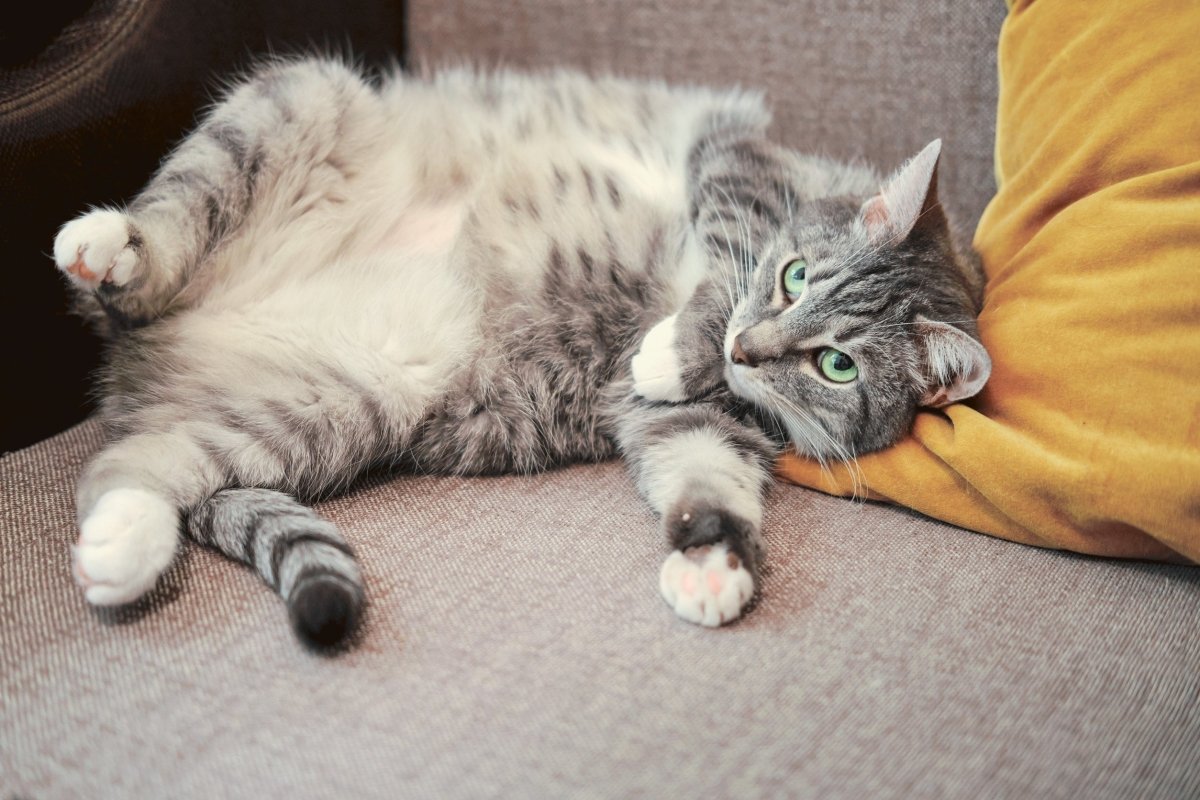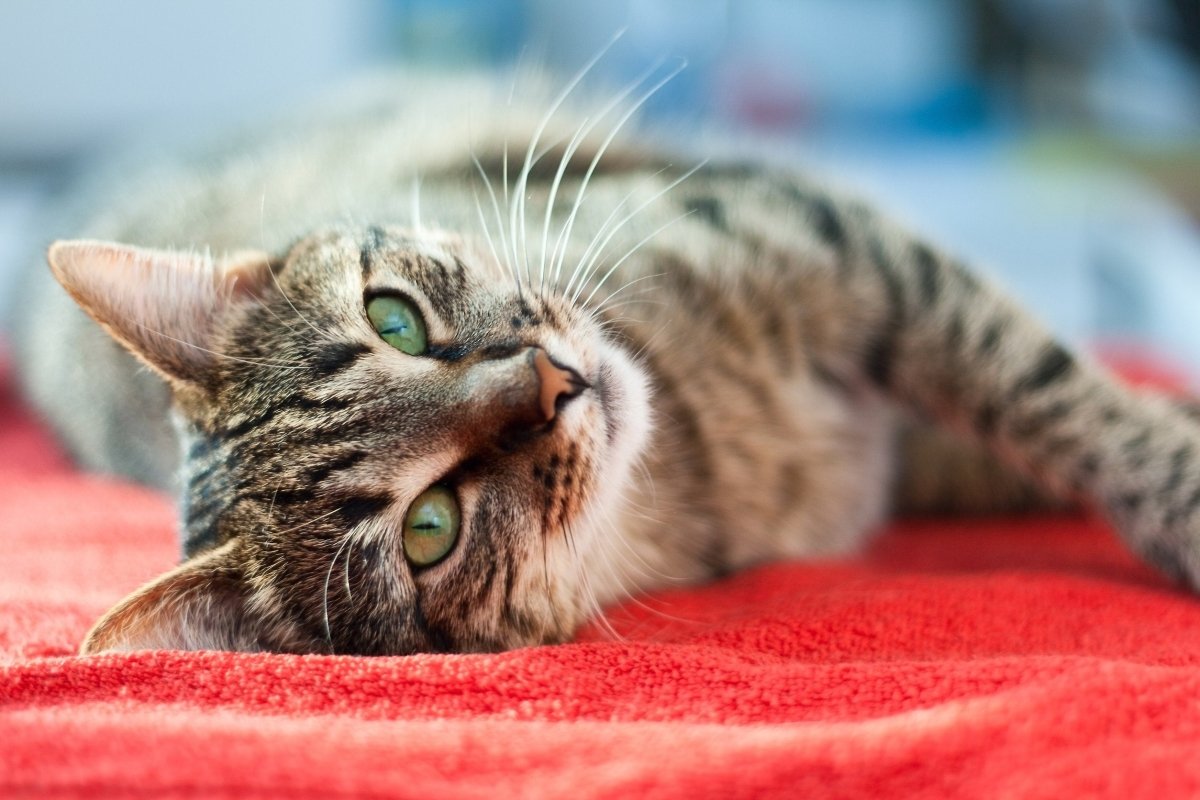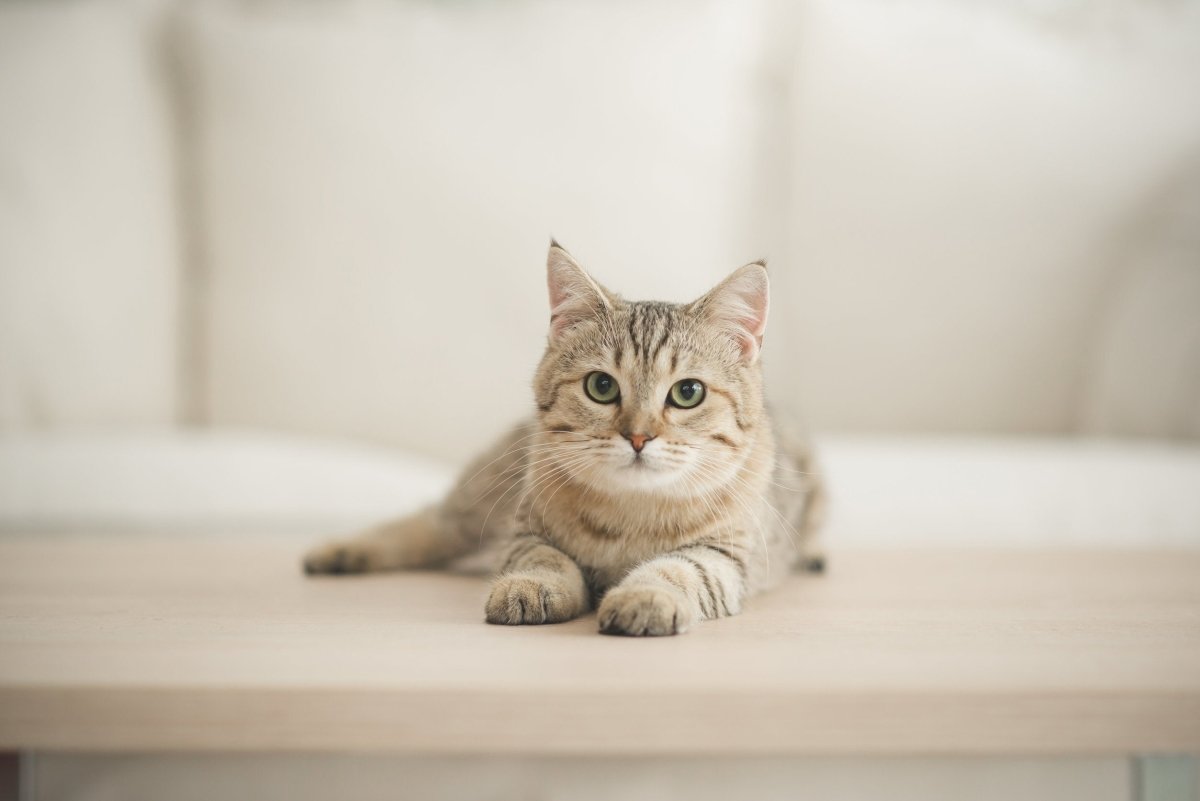Just like us humans, our animal roommates such as cats can of course also suffer from abdominal pain. In cats, this often leads to accompanying symptoms such as diarrhea, constipation or fever, but in most cases the cause is harmless.
As our domestic cats have a natural instinct for survival, they initially show little or no pain. It is therefore often difficult for cat owners to recognize whether a cat should be taken to the vet because of abdominal pain or whether a temporary change to a light diet is sufficient.
We at AniForte would like to explain to you the symptoms by which you can recognize abdominal pain in your cat, what the causes can be, how you can get a simple stomach upset under control yourself and when you should take your cat to the vet.
Does my cat have stomach pain? Typical symptoms
If your cat has stomach cramps, it will most likely also show accompanying symptoms. In addition to sensitivity to touch, sluggishness or a hunched gait, the consistency of the feces is also an indicator of your cat's intestinal health. Liquid feces or a conspicuously small amount of stool can be a sign that your cat has an upset stomach and possibly abdominal pain.
Loss of appetite can also be a natural reaction of a cat when it has stomach pain. Just like vomiting, the cat tries to empty its stomach or keep it empty until it feels better.
As an experienced cat owner, you may know that vomiting is not necessarily a warning sign. Cats do this quite regularly to protect themselves from pathogens. However, if the cat vomits or retches very often, this should be clarified by a vet.
Causes of cats suffering from abdominal pain, constipation & diarrhea
If your cat's temperament changes dramatically and shows behavioral abnormalities, this may be an indication that your cat has abdominal pain. But what are the causes? In the vast majority of cases, the symptoms described above are a harmless reaction to too much food or "the wrong" food.
A food intolerance, an allergy or slightly spoiled wet food can lead to abdominal pain in your cat, which is usually associated with diarrhea. So always make sure that the cat food is fresh, hermetically sealed and as natural as possible. Our AniForte cat food with high-quality meat contains no added sugar, cereals or preservatives, which can also lead to food intolerance.
However, the causes of cats suffering from abdominal pain are very different; sometimes even mental suffering can lead to physical symptoms in our house pets, which can manifest themselves as abdominal pain in cats.
Gobbling food also leads to abdominal pain & vomiting in cats
If your cat gobbles its food down very quickly, this can lead to stomach pain. The stomach fills up too quickly, which leads to an unpleasant feeling of pressure. As a result, the cat vomits because it tries to reduce the stomach contents again quickly. As already mentioned: If your cat vomits several times in one day, this is no cause for concern. If it does not subside, a visit to the vet is advisable.
There are now a few tricks that can save cats that gulp from agonizing stomach pains. For one thing, it makes sense to give your cat small portions to eat several times a day instead of just giving her a huge portion once a day, which she devours immediately.
There are also anti-swallow bowls that make it more difficult for the cat to eat large portions from the bowl and swallow them in one go. This delays food intake and prevents your cat from suffering abdominal pain.
Infectious diseases caused by viruses, bacteria & parasites
In addition to gulping too quickly, spoiled food or an intolerance, infectious diseases caused by viruses, bacteria or parasites can also lead to abdominal pain in your cat. If there is no improvement in your cat within one or two days, you should take your cat to the vet.
They will examine your cat's vital signs, palpate the abdomen and use imaging techniques to detect any fluid retention in the abdomen. Even if it sounds strange, it is also helpful for the vet if you bring along a sample of your cat's faeces or vomit. The vet can examine this for parasites such as giardia and worms.
Cats with abdominal pain - treat it yourself
Abdominal pain in cats is usually of harmless origin and can be managed with simple household remedies or a light diet. A healthy diet without artificial preservatives or additives is the be-all and end-all to prevent your cat's stomach ache in the future.
If you have a cat with a particularly sensitive stomach, you could also consider switching to BARF. This natural feeding method with unprocessed food requires some training, but is then all the more time and cost effective, tastier and healthier for your cat.
Do you have any questions about why your cat might be suffering from stomach pains or would you like to know what we advise in this case? Then get in touch with us. We will be happy to help you!
Light food & abdominal massages for cats with abdominal pain
If your cat is suffering from acute stomach pain, for example due to eating too quickly or cold food, even a temporary change to a light diet can help to improve their well-being. To empty the stomach completely, you can also give your cat a food-free day; this will not harm your cat and can be ended after 24 to 48 hours with a light diet such as chicken with rice or potatoes.
Make sure that your cat drinks as much water as possible when it has stomach pain. This flushes out toxins and provides relief from constipation. A gentle circular abdominal massage can also have a stimulating effect. You should observe your cat's body language to determine any sensitivity to touch.
Laxative home remedies for cat constipation
If your cat can't go to the litter tray, there are some natural foods that stimulate bowel movements and provide relief for your cat's annoying stomach cramps. Before you make any rash attempts, you should first discuss with your vet whether you can safely give your cat these home remedies for stomach pain.
Firstly, we recommend natural cooking oils for cats with constipation. While olive or rapeseed oils are usually not convincing in terms of taste, our salmon oil meets the taste of most cats. Simply add a tablespoon of this valuable oil to your cat's food.
As adult cats are lactose intolerant, lactose can also stimulate intestinal activity. So if your cat suffers from constipation, you can give it a bowl of milk to eat. Even a small spoonful of cream can have an abortive effect.
You can strengthen your cat's immune system with our propolis powder made from 100 % naturally ground propolis. This protects house tigers from transmissible infectious diseases.
Cat with stomach pain: what to do and when to go to the vet?
If you notice that your cat is still suffering from abdominal pain or that it is getting worse even after 1 or 2 days on a light diet, you should take your cat to the vet. It is best to take all the samples you have been able to collect from your cat with you.
Even if your cat does not defecate for more than a day or has extreme diarrhea, a visit to the vet is advisable. They can find out whether the symptoms are infectious or the result of a food intolerance, for example.

